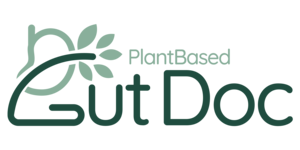Let’s face it, we’ve all had digestive issues at some point in our lives and it is not pleasant!
I and other Integrative medicine practitioners believe that the mind, body, and spirit are inseparable when it comes to health and are all essential components of your wellbeing. We keep all these complementary aspects of health in mind while we design your individual wellness. This helps with disease prevention and long-lasting healing.
As an integrative gastroenterologist, I’m constantly combing through research studies to find up to date evidence to support you and my patients in your individual journeys. There are many therapies, including nutrition and lifestyle medicine recommendations, that can help you manage your digestive issues.
There are obvious benefits to traditional medicine and medication prescriptions; we know these are lifesaving and have a place in your healthcare. But we’re here to explore complementary approaches that won’t just manage your disease but may also help prevent it!
A large survey conducted on the use of complementary and alternative medicine therapies for patients with gut disorders reflects that supplements are widely used, as well as mind-body and manipulative therapies, such as acupuncture and massage therapy.

But beware! There isn’t always a lot of evidence to support certain complementary practices, therapies, and supplements. For that reason, you should treat them just as you would prescription medications, by carefully weighing their pros and cons. And as always, discuss their use with your doctor to see if there are interactions or potentially unforeseen negative side effects.
Supplements are not regulated by the FDA like traditional medications. We do not have tons of data to support their widespread use or to show the potential negative effects in humans. As a wise consumer, you have to make sure that you educate yourself about the benefits and risks of everything you decide to partake in, whether prescribed or over the counter!
Complementary Strategies
So enough of the less fun stuff. Let’s dig into some amazingly beneficial therapies!
There are lots of great strategies you can start using today to improve your gut health and manage your digestive issues.
Vagus nerve activation
This is a big sciency term, but don’t let that deter you! This is very easy to implement in your daily life. Vagal nerve activation can reduce stress and improve your overall health, and who wouldn’t benefit from a little more relaxation in their life! Some ways to activate your vagus nerve are:
-
Slow rhythmic diaphragmatic breathing
Also known as abdominal or belly breathing. Sit or lie down in a relaxed and comfortable position. Place one hand in your upper chest and the other one just below your rib cage, near your stomach. As you breathe in slowly through your nose feel your diaphragm move and raise your hand. Exhale slowly through your mouth as your abdomen tightens and lowers your hand. The hand in your upper chest should remain still. Ideally, practice 5 to 10 minutes each day. Feel your body calm and relax with each breath. Remember, practice makes progress!
-
Meditation
This is a practice that takes time to build. While it can seem overwhelming if you are not a regular practitioner of it, keep it up! Meditating is like building a new muscle – but since you can’t see it, it may be harder to gauge building it correctly.
I suggest starting with a guided meditation! There’re tons on the internet. Try typing “meditation for relaxation” or “meditation to relieve stress” or any other search term you want. Start with 5-10 minutes per day and go from there. At first, it will feel like your mind is racing, but don’t fret! The guided meditation will show you that this is normal and expected.
Meditation is not about blocking thoughts or emotions, but becoming aware of them and allowing them to come and go. Research shows meditation promotes a healthy vagal tone along with more peaceful and positive emotions. Mindfulness strategies help regulate your nervous system and your gut brain connection. Apps like Headspace, Calm or Insight Timer might help you get started.
-
Yoga
This practice has the capacity to stimulate vagus nerve activity and support your parasympathetic nervous system. It also helps you by reducing stress, increasing circulation, encourage movement of the gastrointestinal tract and relieves bloating. Grab a mat and start practicing with simple poses!
If you need some extra help, you can always check out our vagal nerve stimulation expert, Amanda Sevilla!
Acupuncture Treatments
There are some studies showing the benefits of acupuncture in stress and pain relief. Acupuncture points are believed to stimulate the body’s natural healing abilities. It helps you balance the nervous system by reducing stress, pain and inflammation and increasing blood circulation, at the same time improving digestive function. Visit a licensed acupuncturist to explore your treatment options.
Exercise
First, regardless of its use as a complementary treatment, you should do this because it feels right for your body! A cardio session, lifting weights, practicing a sport, a spinning class, or even a short walk around the neighborhood give countless benefits. Exercise also promotes a healthy gut microbiome. Be sure to do at least 150 minutes per week of moderate intensity aerobic exercise.

Nature Bathing
This is not complicated! Just connect with nature by spending time outdoors. Use your 5 senses to experience and explore your surroundings mindfully. Go to a nearby park, the beach, or your patio! This connection helps improve your blood pressure, heart rate and lowers stress levels, as well as your immune system. Studies show that spending 120 mins in nature every week is optimal for health: mind, body and spirit.
Pelvic Floor & Massage Therapy
Do you love a good massage? I am giving you “a prescription” to get one! Manipulative and physical therapies can improve movement of your gastrointestinal tract and help reduce stress and body tension. Practice with self-massages or schedule a session with a professional therapist.
If you’re struggling with digestive disorders like constipation, incontinence, or incomplete delectation, have issues like peeing when you cough, laugh, or sneeze, or perhaps having issues with sexual function, a pelvic floor therapist is likely to be able to help you! They will evaluate you and identify weaknesses in the area that supports our anorectal, vaginal, and bladder health! This is an area of our body most of us don’t think about or know how to exercise, so having someone assess it and guide us can have tremendous benefits for our gut health!
Cognitive Behavioral Therapy (CBT)
We all benefit from having a good therapist and there should be no shame in having someone guide us through the ups and downs of life! Psychotherapy or coaching can teach you different techniques to tackle brain-gut dysfunction, stress management, lifestyle factors, and symptom experience.
Unloading the causes of stress and learning the tools to manage them, can greatly improve your long term health. Schedule an appointment with a licensed psychologist or coach trained in CBT therapy to get started.

And on to my favorite subject: FOOD!
Probiotics and Prebiotics
Having a variety of healthy gut bacteria creates short chain fatty acids which help your body perform many functions like maintaining digestive and immune health, decreasing inflammation, keeping your metabolism in tip top shape, and even communicating positively with your brain! The best way to support your gut microbiomes is to feed them pre- and probiotic foods!
Studies show that you should focus on adding more diversity of whole plant based foods (work up to 30+ plants per week). All these plants contain different forms of fiber and plant chemicals (phytochemicals) and do wonders to support your microbiome! Add whole grains, bananas, legumes, nuts, onions, garlic, and fermented foods to your meals so you can supercharge it!
When it comes to pre and probiotic supplements, the data is not actually as strong in support of using these for digestive health. Why you may ask? Each of us has a unique microbiome and we still don’t have validated tests that accurately report what species you may be deficient in. Most commercially available probiotics don’t carry the medical grade bacteria to, in the first place, survive the digestive process in the stomach and much less make it to our colon microbiome to make an impact.
CONCLUSION/DISCLAIMER
With integrative health practices, we can work with you to incorporate complementary and alternative medicine as part of the treatment and prevention of gastrointestinal issues and disease.
Remember not every therapy is right for everyone. Be sure to consult with your health provider before committing to any of these treatments to assess the risk-benefits for your specific disease.
And if you’re looking for experts in integrative and complementary medicine to guide you on the best strategies for your specific needs, look no further than Planted Forward!
For breathing techniques, stress management, and vagal activation techniques, you can book with our Health Coach, Jacque Tarlton, or our integrative dietician, Amanda Sevilla. If you’re looking for dietary interventions to help treat your gut health issue, our interventional GI dietician, Natalie Castro is who you’re looking for. For guidance on heart health, you can book with our cardiologist, Dr. Nicole Harkin. And if you want to get your kids started on wellness promoting, evidence-based complementary medicine, Dr. Yolanda Rivera-Caudill is your best bet.
Or you can book with me to help you work through your gut health issues!
We look forward to working with you!








